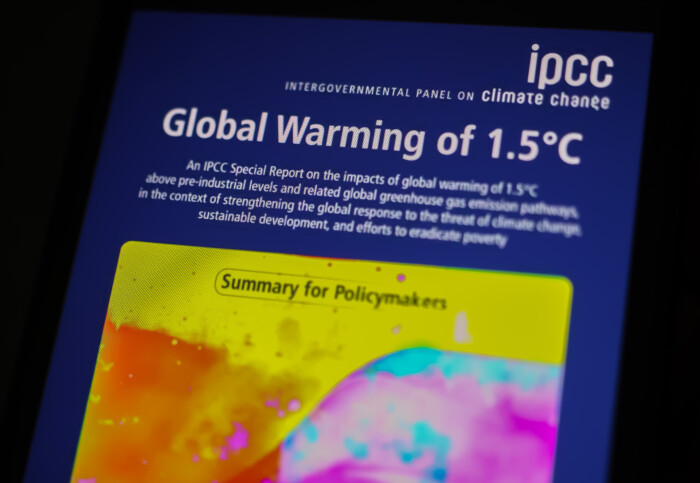Climate change panel and lung treatment: News from the College

Here’s a batch of fresh news and announcements from across Imperial.
From the nomination of an Imperial expert to a prestigious climate change panel, to research into the best treatment for lung volume reduction, here is some quick-read news from across the College.
Climate change panel nomination
 Jim Skea, Professor of Sustainable Energy at the Centre for Environmental Policy at Imperial, has been announced as the United Kingdom’s candidate for Chair of the Intergovernmental Panel on Climate Change (IPCC) 2023.
Jim Skea, Professor of Sustainable Energy at the Centre for Environmental Policy at Imperial, has been announced as the United Kingdom’s candidate for Chair of the Intergovernmental Panel on Climate Change (IPCC) 2023.
He is currently Co-Chair of IPCC Working Group III on mitigation and co-led the IPCC’s seminal Special Report on Global Warming of 1.5°C. He has researched and written or co-authored more than eighty publications and several books on energy, climate change and technological innovation.
If elected, Professor Skea has outlined his three key priorities for the IPCC: ensuring inclusive participation and collaboration across all regions; promoting the use of the best and most relevant science; and maximising the reach and impact of the IPCC’s work through engagement with policymakers and other stakeholders.
Professor Skea said: “I am honoured to be the UK candidate for the Chair of the IPCC. If elected, I would bring to this role over forty years of scientific experience and expertise, a unique international perspective, a track record of forging consensus, and an unwavering drive to ensure that the impacts and challenges of climate change are understood and that action to avert them is supported by sound science.”
Gates Cambridge scholarship
 An Imperial engineering student has been named as one of the recipients of a prestigious international postgraduate scholarship this year.
An Imperial engineering student has been named as one of the recipients of a prestigious international postgraduate scholarship this year.
Zimu Huo, a fourth-year MEng student in the Department of Bioengineering, has been selected as part of the 2023 cohort for the Gates Cambridge scholarship programme from the University of Cambridge. The programme was established through a major donation from the Bill and Melinda Gates Foundation in 2000. It has since awarded 2,100 scholarships to scholars from 112 countries who represent more than 700 universities globally.
Zimu will use the scholarship to continue his research on enhancing healthcare accessibility worldwide through the provision of cutting-edge and effective medical technologies.
He said: “I am extremely grateful for the generous support of the Gates Cambridge Trust, as it allows me to continue my academic journey at Cambridge, where I will concentrate on Zero Echo Time Cardiac MRI. This exciting technology holds the potential to revolutionise our understanding of cardiovascular calcification formation and significantly improve our ability to diagnose and manage this medical condition.”
Read more about the Gates Cambridge Class of 2023 here.
Lung treatment decisions

Research has previously shown that lung volume reduction surgery can benefit patients with emphysema by improving lung function, exercise capacity and quality of life. However, questions remained over which of two treatments available is more effective. A new study from Professor Nick Hopkinson and Sara Buttery found that lung volume reduction surgery (LVRS) cannot be considered substantially superior to bronchoscopic lung volume reduction (BLVR). This will help emphysema patients make more informed decisions on the best treatment for them.
In LVRS, the most damaged parts of your lungs are removed so the healthier parts can work better, whereas in BLVR, valves are placed into your airways to stop air from getting to damaged parts of your lung. This causes the damaged part to shrink.
The trial discovered that for individuals suitable for both treatments, LVRS does not produce superior outcomes. This is important when educating patients on the procedures and guiding informed decision making. It provides more information that is particularly important to an individual making a decision between two procedures, such as length of stay, success and complication rates. This is important to empower the patient to feel well informed during the decision-making process.
Read the full paper in the European Respiratory Journal. Want to be kept up to date on news at Imperial? Sign up for our free quick-read daily e-newsletter, Imperial Today.
Want to be kept up to date on news at Imperial? Sign up for our free quick-read daily e-newsletter, Imperial Today.
Article text (excluding photos or graphics) © Imperial College London.
Photos and graphics subject to third party copyright used with permission or © Imperial College London.
Reporter
Ms Helen Johnson
Communications Division
Conrad Duncan
Communications Division
Hayley Dunning
Communications Division